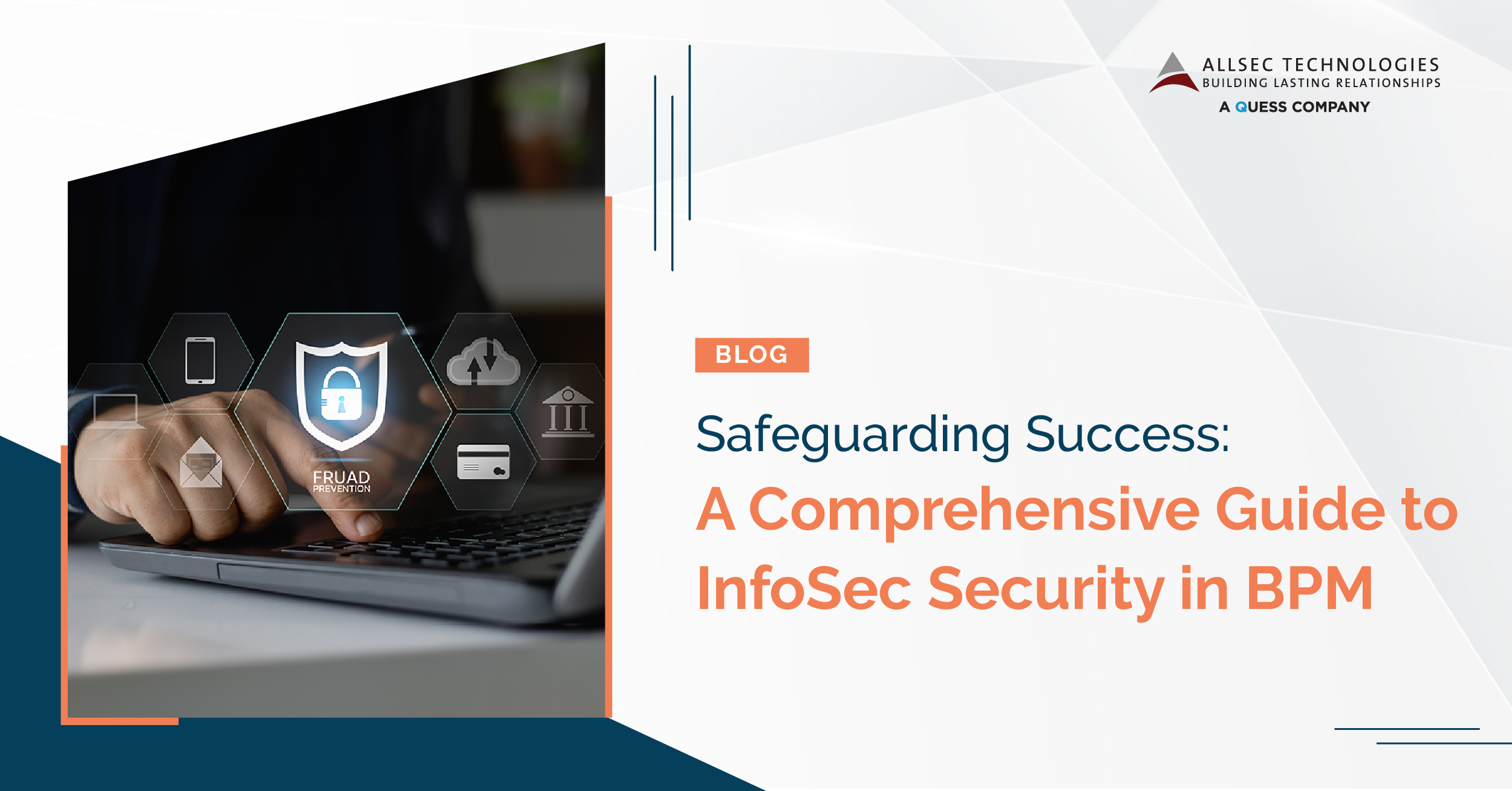
In the age of technological advancements, organizations in the Business Process Management (BPM) sector, particularly those serving Anti-Money Laundering (AML) and Know Your Customer (KYC) functions for banking and FinTech, must emphasize Information Security (InfoSec) adequately. Similarly, BPM companies in healthcare support services, entrusted with sensitive patient data, play a crucial role in preserving the integrity and confidentiality of vital information. This blog explores key aspects of InfoSec in AML/KYC verification and healthcare data protection, covering regulatory considerations, potential threats, and compliance strategies.
Understanding the Regulatory Landscape
For BPM companies operating in the space within healthcare, banking, and FinTech, adherence to global and regional regulations is non-negotiable. Key regulations include:
- Health Insurance Portability and Accountability Act (HIPAA): Enforced in the healthcare sector, HIPAA mandates stringent measures to safeguard patient information.
- PCI DSS (Payment Card Industry Data Security Standard): Developed by major credit card companies, PCI DSS is a comprehensive set of security standards aimed at safeguarding payment card data.
- Bank Secrecy Act (BSA) and Anti-Money Laundering (AML) Regulations: Governed by financial institutions, these regulations necessitate thorough KYC procedures to prevent money laundering and illicit financial activities.
- General Data Protection Regulation (GDPR): Applicable in the European Union or for the entities that could be located anywhere in the world that deal with EU citizens’ personal data, GDPR outlines stringent guidelines for the protection of personal data and cross-border data transfer.
- Financial Action Task Force (FATF) Recommendations: For FinTech companies, adherence to FATF recommendations ensures compliance with international standards in combating money laundering and terrorist financing.
The Threat Landscape
Cyber threats pose a significant risk to BPM companies handling sensitive information. According to a study by IBM, the average cost of a data breach in 2023 was $4.45 million. The healthcare industry, in particular, has seen a surge in cyberattacks. In the first three quarters of 2023, the healthcare sector witnessed 480 data breaches, a significant surge compared to the 373 breaches reported for the entire year of 2022. This highlights a notable increase in both the frequency and magnitude of cyberattacks.
Ensuring Compliance
To fortify InfoSec in BPM, companies must adopt a proactive approach. Key strategies include:
- Encryption and Tokenization: Utilize robust encryption and tokenization techniques to secure sensitive data during transmission and storage.
- Access Control: Implement stringent access controls to restrict unauthorized access to sensitive information. Regularly review and update access privileges.
- Regular Audits and Assessments: Conduct periodic security audits and risk assessments to identify vulnerabilities and ensure compliance with regulatory requirements.
- Employee Training: Invest in comprehensive training programs to educate employees about security best practices, phishing threats, and the importance of data protection.
- Incident Response Plan: Develop and regularly update an incident response plan to efficiently address and mitigate the impact of security incidents.
- Vendor Management: Ensure that third-party vendors comply with security standards. Regularly assess their security protocols to mitigate risks associated with external partnerships.
- Deploy information security controls in line with the applicable global and regional acts, global standards in Information security domain and obtain compliance certifications.
In Conclusion
In the dynamic landscape of BPM, prioritizing InfoSec is not just a regulatory requirement but a business imperative. The potential consequences of a data breach extend beyond financial losses, impacting customer trust and brand reputation. By adopting a proactive and comprehensive approach to information security, BPM companies can not only meet regulatory obligations but also build a robust foundation for sustained success in the ever-evolving digital landscape.
At Allsec, we recognize the critical nature of information security. With a commitment to compliance, we consistently stay on top of the regulations set out in the rapidly changing InfoSec environment. This proactive stance ensures that our clients in healthcare, banking, and FinTech can trust us as a reliable partner in safeguarding their sensitive data, thereby reinforcing the integrity of our services and bolstering their confidence in our commitment to security. Allsec is ISO 27001, PCI DSS, HIPAA certified Organization and SOC 1, Type II (ISAE 3


